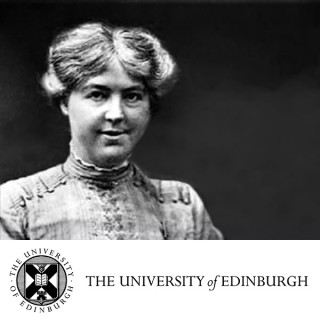Podcasts about professor pippa norris
- 3PODCASTS
- 6EPISODES
- 34mAVG DURATION
- ?INFREQUENT EPISODES
- Mar 26, 2019LATEST
POPULARITY
Best podcasts about professor pippa norris
Latest podcast episodes about professor pippa norris
In this episode, I am speaking with Professor Pippa Norris about her work on electoral integrity. Pippa Norris, is the Paul F. McGuire Lecturer in Comparative Politics at the John F. Kennedy School of Government, Harvard University, ARC Laureate Fellow and Professor of Government and International Relations at the University of Sydney, and Director of the Electoral Integrity Project. Pippa has published almost fifty books. Most recently these books focus on electoral integrity. with Electoral Integrity (2017 Cambridge), Election Watchdogs (ed. 2017 Oxford), Why American Elections are Flawed (2017 Cornell), Cultural Backlash: Trump, Brexit and Authoritarian-Populism (2018 Cambridge, with Ronald Inglehart) and Electoral Integrity in America (ed. 2018 Oxford University Press). Pippa talks about key features of electoral integrity factors which support or hinder electoral integrity why the United States is at the bottom of the ‘scoreboard’ amongst Western democracies in regard to electoral integrity and how different electoral systems impact on the representation of minorities and women.
Bonus Ep10 Deliberation Culture Context - John Dryzek
Welcome to Episode 10 in this special bonus series of Real Democracy Now! a podcast about Deliberation, Culture and Context. This bonus series has been made in collaboration with the Centre for Deliberative Democracy and Global Governance at the University of Canberra. In this series, I’ve spoken with most of the presenters at the Centre's conference on Deliberation, Culture and Context, which was held in early December 2017. This conference brought together scholars from around the world to examine the different forms, meanings, and significance associated with deliberation in various cultures and contexts. A copy of the conference program is available here. This Conference was supported by John's ARC Laureate Fellowship entitled "Deliberative Worlds: Democracy, Justice and a Changing Earth System." In this episode, I’m speaking with Professor John Dryzek about his ARC Laureate Fellowship, his reflections on the Conference generally, how we might establish global deliberative processes and directions for future research in this area. In reflecting on the conference John made a number of interesting points about deliberation, culture and context: deliberation is a universal capacity - anyone anywhere can do it however, deliberation is manifested differently in different cultures and contexts context and culture should not be conflated culture involves processes of meaning-making to which deliberation can contribute there are ethical issues associated with critiquing other cultures. Despite the range of cultures and contexts in which deliberation occurs John believes that 'we can't simply wait' until we understand these different approaches before we develop global deliberative processes or we could be waiting forever. John identifies two broad research agendas: consider research questions from a non-western perspective undertake empirical research looking at how deliberative processes can feed into global governance. The next episode of the podcast will be back to Season 3 looking at Elections, Electoral Systems and Alternatives. In episode 5 of Season 3, I’ll be talking with Professor Pippa Norris about electoral integrity.
Welcome to episode four of season three of Real Democracy Now! a podcast. This episode is also the 43rd episode of the podcast and the first one since the first birthday of the podcast last week. To help celebrate the podcast’s birthday I’d appreciate it if you could share either your favourite episode of the podcast or the podcast generally with someone you think would find it interesting. Today's episode is about electoral reform with Dr Alan Renwick, Deputy Director of the Constitution Unit at UCL in London. Alan’s expertise lies mainly in the areas of electoral systems, referendums, and other modes of engaging the public in decision-making processes, such as citizens’ assemblies. His research is comparative: besides the UK, his recent projects have included all European democracies as well as New Zealand, Japan, and Canada. In addition to numerous journal articles, chapters and reports he is the author of two books about electoral reform: A Citizens’ Guide to Electoral Reform and The Politics of Electoral Reform: Changing the Rules of Democracy. Thanks for joining me today. In the next episode I’ll be talking with Professor Pippa Norris about electoral integrity. I am currently putting together interviews about electoral systems around the world and so far I’ve interviewed people about India, South and Southern Africa, Australia, Asia and the South Pacific and New Zealand. I would also like to interview someone about electoral systems in Latin America but have not been successful in finding the right person to do this. If you know someone who you could fill this gap please introduce them to me via email at nivek.thompson@uts.edu.au
2.Bonus Democratic deficit, a mismatch between expectations & performance plus challenges with Prof Pippa Norris
Welcome to this bonus episode in Season 2 of Real Democracy Now! a podcast. Season 2 is about representative democracy and this episode is about the democratic deficit. In episodes 12 and 13 of Season 2 I spoke to a range of academics about the democratic deficit arising from declining levels of trust and structural aspects of our current system of representative democracy. Today I talk with Professor Pippa Norris about the democratic deficit arising from the gap between people’s expectations of democracy and their perception of its performance. Pippa is the Paul F. McGuire Lecturer in Comparative Politics at Harvard University where she has taught for two decades. She is also ARC Laureate Fellow and Professor of Government and International Relations at the University of Sydney. She is a political scientist focusing on democracy and development, public opinion and elections, political communications, and gender politics. She directs The Electoral Integrity Project, a multimillion dollar six-year research project with a team based at Sydney and Harvard. She has published almost forty books, two of which are particularly relevant to my discussion with her today Critical Citizens: Global Support for Democratic Governance, published in 1999 and Democratic Deficit: Critical Citizens Revisited, published in 2011. She continues to work in this area and she is currently writing a new book Democratic Deficits: Rising Aspirations, Negative News or Failing Performance?. Thank you for joining me for this bonus episode. I will be talking to Pippa again in Season 3 about The Electoral Integrity Project.
Prof. Pippa Norris - Gender Equality in Elected Office: Beyond Quotas
Professor Pippa Norris delivers the annual Chrystal Macmillan lecture, which examines the disproportionate lack of women in elected office. Prof. Norris is the McGuire Lecturer in Comparative Politics at Harvard University's John F. Kennedy School of Government, and winner of the 2011 Johan Skytte Prize, the most prestigious prize within political science. Recorded Monday 21 November 2011.
Prof. Pippa Norris - Gender Equality in Elected Office: Beyond Quotas
Professor Pippa Norris delivers the annual Chrystal Macmillan lecture, which examines the disproportionate lack of women in elected office. Prof. Norris is the McGuire Lecturer in Comparative Politics at Harvard University's John F. Kennedy School of Government, and winner of the 2011 Johan Skytte Prize, the most prestigious prize within political science. Recorded Monday 21 November 2011.






